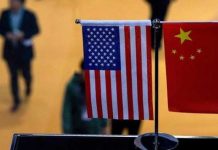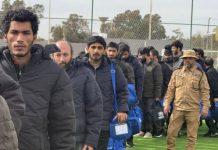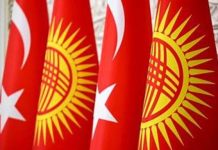Addis Ababa, Feb 16: Morocco remains committed to joint African action at the service of Africa’s noble causes and the vital interests of its citizens. The February 2025 African Union (AU) Summit addressed several issues, including peace and security, continental integration, health security and climate change, as well as renewing the leadership of the AU Commission. The agenda was also marked by the absence of the Moroccan Sahara issue, much to the dismay of opponents of the Kingdom’s territorial integrity. As such, the pan-African organization confirmed its stance of concentrating its efforts on dealing with urgent, priority issues for Africa, and thus breaking with its instrumentalization as a platform dedicated to serving the narrow agendas and unhealthy political aims of some.
As in previous years, Morocco’s participation in this session of the Conference was marked by a substantial, high value-added contribution to the high-level meetings and events covering several themes. Morocco took part in the AU Peace and Security Council meeting at the level of Heads of State and Government on the situation in Sudan and the crisis in Eastern DRC, during which the PSC unanimously endorsed Morocco’s proposal to observe a humanitarian truce in Sudan during the holy month of Ramadan, to allow access to humanitarian aid without restriction or discrimination. Morocco also took part in the high-level meeting on health financing, at which it announced a substantial contribution to strengthening health security on the continent.
Eight years have passed since Morocco returned to its African institutional family. A short time in the life of multilateral institutions, but one that was sufficient for Morocco, thanks to an enlightened and proactive Royal Vision, to reassert itself as a key player within the pan-African institution, whose actions and initiatives enjoy collective support, and whose credibility has earned it the confidence of the Union’s driving forces in various respects.
In 2018, for example, the African Union designated His Majesty King Mohammed VI, may God assist Him, as Leader on the issue of Migration, and chose Rabat to host the African Migration Observatory. Also, the Royal initiatives on climate issues, launched in 2016 at the African Summit for Action, still represent a success story and a clear reference point for African countries in their collective quest to build an African model of climate resilience.
In addition, African countries elected Morocco as a member of the Peace and Security Council for two terms, 2018-2020 and 2022-2025, during which the Kingdom held the chairmanship of this important body on three occasions and launched innovative, groundbreaking and concrete initiatives inspired by the Royal Vision aimed at serving the vital interests of African citizens in terms of peace, security and development. In this respect, the Tangier Declaration, which emerged from the Tangier Conference on Promoting Peace, Security and Development, was unanimously endorsed by the AU Conference and represented a pivotal moment on the road to revitalizing the peace-security-development nexus approach as a comprehensive, integrated and relevant response to the challenges of peace and security on the continent. In addition, this initiative has federated the efforts of all stakeholders, including member states, financial bodies and institutions, regional economic communities, UN agencies and civil society organizations.
Morocco has also set up a specialized training program for AU election observers, with the aim of promoting the democratic process on the African continent.
The Kingdom has also succeeded in ensuring the presence of highly qualified profiles at the level of the various structures of the African Union Commission, such as the position of Director General of the AUC, which constitutes a key managerial position within the latter, as well as other positions of strategic importance. On another front, Morocco has assumed the presidency and vice-presidency of important bodies within the Union. It held the chairmanship, at ministerial level, of the Specialized Technical Committee (STC) on economic issues, and the vice-chairmanship of the STC on the civil service, local authorities, urban development and decentralization. It also held the chairmanship of the Subcommittee on Economic Issues and vice-chairmanship of the Subcommittee on Environmental Issues.
On the strength of its historical anchorage in the African institutional edifice, as one of its founding members, and of its resolute and constant commitment to the noble causes of the African continent, Morocco will resolutely and with determination pursue its constructive and high value-added contribution to joint African action within the framework of the intergovernmental process, to meet the challenges that persist within the pan-African organization in terms of strengthening good administrative and financial governance, and to thwart all attempts to halt the momentum of reform within the African Union.
Morocco’s efforts within the institution are primarily aimed at realizing the Royal Vision of placing Africa’s noble causes and the vital interests of the African citizen in peace, security and development at the center of the pan-African agenda, and giving leadership to the African continent so that it can carry Africa’s voice high on the international stage.












